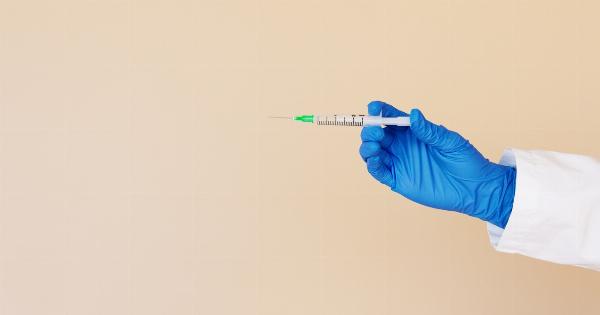Are you planning to get pregnant? You may already know that your health and nutrition play a crucial role in ensuring a healthy pregnancy. In this article, we will discuss four essential nutrients that you must focus on while planning for a baby.
Folate
Folate is a type of B vitamin that is essential for the healthy development of your baby’s brain and spinal cord. Lack of folate during pregnancy can lead to neural tube defects in babies, such as spina bifida.
It is recommended that women who are planning to get pregnant should consume at least 400 micrograms of folate per day. You can get folate from foods such as leafy greens, citrus fruits, whole grains, and beans.
However, it is often difficult to get enough folate from food alone, so your doctor may recommend taking a folic acid supplement.
Iron
Iron is an important nutrient that is necessary for the production of red blood cells. During pregnancy, your body needs more iron to support your growing baby’s needs.
Lack of iron can lead to anemia, which can cause fatigue, weakness, and other complications during pregnancy.
It is recommended that women who are planning to get pregnant should consume at least 18 milligrams of iron per day. You can get iron from foods such as lean meats, beans, nuts, and fortified cereals.
If your doctor determines that you are not getting enough iron from food, they may recommend taking an iron supplement.
Calcium
Calcium is necessary for the healthy development of your baby’s bones and teeth. If you don’t get enough calcium during pregnancy, your baby will take it from your bones, which can lead to osteoporosis later in life.
It is recommended that women who are planning to get pregnant should consume at least 1,000 milligrams of calcium per day. You can get calcium from dairy products, leafy greens, fortified juices, and soy products.
If you are lactose intolerant or don’t consume dairy products, your doctor may recommend a calcium supplement.
Omega-3 Fatty Acids
Omega-3 fatty acids are essential fats that are important for the healthy development of your baby’s brain and eyes.
They also have anti-inflammatory properties that can help reduce the risk of preterm labor and depression during and after pregnancy.
It is recommended that women who are planning to get pregnant should consume at least 200-300 milligrams of DHA (a type of omega-3 fatty acid) per day. You can get DHA from foods such as fatty fish (salmon, sardines), walnuts, and flaxseed.
Your doctor may also recommend a DHA supplement.
Conclusion
Getting enough of these essential nutrients is crucial for a healthy pregnancy. If you are planning to get pregnant, talk to your doctor about your nutrition and whether you need to take supplements.




























